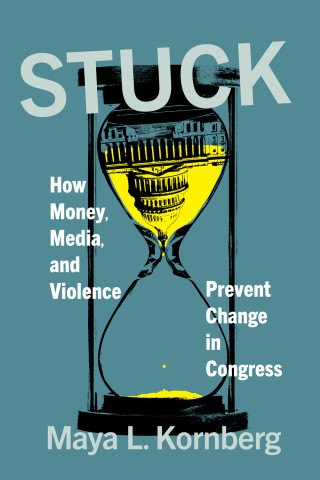
Reviews
As the U.S. searches for a way forward, Katz’s largely objective and thoughtful analysis offers much to consider.
A fine pick for any military or political science holding.
Katz offers a strong, cogent argument.
A model of its kind.
This slender volume is packed with many insights. A collection of short chapters, some not much longer than op-eds, reveals author Mark Katz's wisdom and prudence when it comes to the use of military power, and the need for patience and persistence when pursuing long-term objectives... His straightforward prose engages the reader in what often feels like a quiet one-on-one conversation... The book is suffused with a tone of welcome optimism, but not naïveté.
A well-written and well-organized presentation of possibilities and angles that counterterrorism policy makers and analysts should consider.
Mark Katz makes a concise and readable argument for why withdrawal from Iraq and Afghanistan will serve to weaken the forces of radical Islam, and along the way provides a trenchant critique of the uses to which American power has been put over the past decade.
In this lucid and articulate book, Mark Katz makes the counter-intuitive argument that the United States might actually ‘win’ the war on terror by extricating itself from conflicts in the Muslim world. Drawing on the history of previous ideological movements, Katz suggests that radical Islamic groups— without the benefit of a unifying external enemy—will overreach, fight among themselves, alienate their followers and even reach out to the United States, as have former U.S. adversaries China and Vietnam. This book should be required reading for all students of foreign policy and especially U.S. presidential candidates
A lucid and highly informative guide to thinking about how to confront violent extremism in the Middle East and South Asia. The many insights Mark Katz draws from the Cold War experience provide a sound basis for navigating successfully through the perplexing problems related to international terrorism.
Emotions about the wars in Iraq and Afghanistan and the continued struggle against radical Islam still run high. Mark Katz's new book Leaving without Losing provides exactly the balanced and realistic analysis necessary to understand the complex nature of modern terrorism and the unique challenges we face in confronting it. A first class study.
I highly recommend this informative and thoughtfully argued book. The book discusses the marginalization of al-Qa'ida and its radical paradigm in light of winding down the wars in Iraq and Afghanistan as well as the Arab Spring. Katz offers a sobering analysis of 'what went wrong' during the first decade of the war on terror.
Book Details
Acknowledgments
Prologue: The Beginning of the End of the War on Terror?
The War on Terror in Perspective
The Second Decade of the War on Terror
What Exactly Is the War on Terror?
Understanding What Went
Acknowledgments
Prologue: The Beginning of the End of the War on Terror?
The War on Terror in Perspective
The Second Decade of the War on Terror
What Exactly Is the War on Terror?
Understanding What Went Wrong in the First Decade
Assessing the Bush Strategy
Why Couldn't the United States Foster Democracy in Iraq?
Why Couldn't the United States Foster Democracy in Afghanistan?
Democratization and the Legacy of History in the Muslim World
Assessing the Obama Strategy
Opportunities after Withdrawal
Consequences of Withdrawing from Iraq and Afghanistan
Regional Opposition
Radical Repression
Rifts among the Radicals
Withdrawal Need Not Be Defeat
Beyond Iraq and Afghanistan
Regional and Local Conflicts in the War on Terror
The Israeli-Palestinian Conflict
Iran
Yemen
Pakistan
Decoupling Regional and Local Conflicts from the War on Terror
New Factors and Broader Contexts
The Death of Osama bin Laden
The Arab Spring
The Geopolitical Context
The Historical Context
The Bush and Obama Legacies
Works Cited
Index






